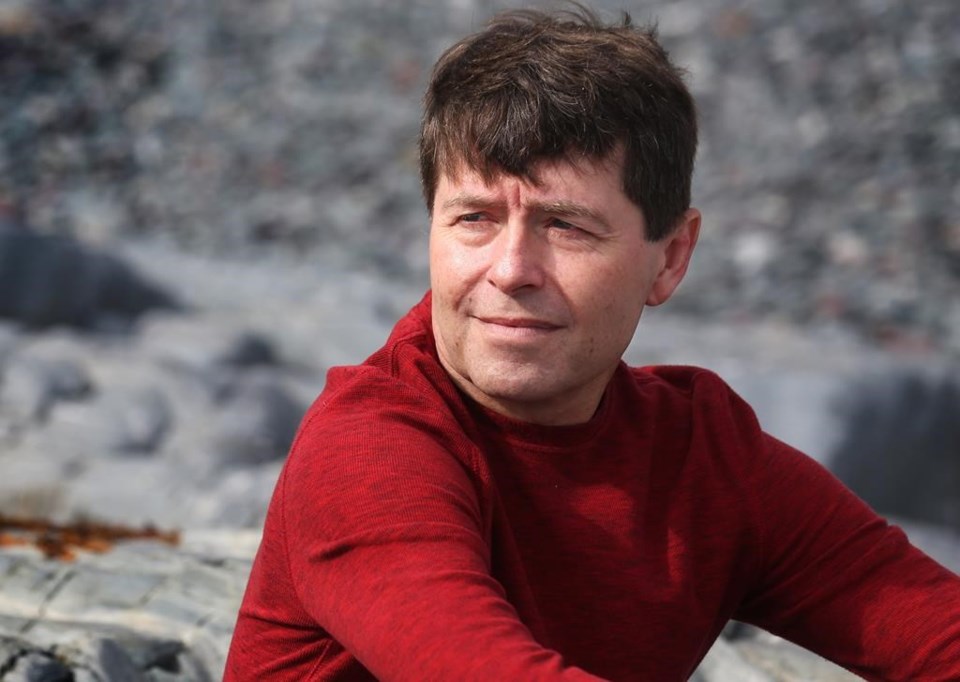TORONTO — When it came time for Michael Crummey to write his latest novel, he decided he wouldn't go easy on himself — or his reader.
There would be no kernel of goodness at the core of his two main characters, no redemption, no justice. In "The Adversary," he would reckon with the very worst of the world, writing in unflinching detail. And if his audience so chose, they would read it and they would flinch.
"My temptation is always to try to find some grace in the world, to see both sides of a coin and to look for the good in people," Crummey said Tuesday, the day of the book's release.
"And it seems to me we're in a world where lots of people who are working towards or who are in power, there is no good in them. There's no redeeming characteristics."
In the novel, those heartless leaders take the form of a brother and sister who own competing trading companies in a remote part of Newfoundland at the turn of the 19th century.
Abe is a reckless drunk with unchecked authority, his vitriol and violence driven by his immediate appetites. His sister, the Widow Caines, is calculated in her cruelty, unhesitant to hurt people if it serves her purpose.
Crummey conceived of the novel, published by Knopf Canada, as a sort of polar opposite to the one that came before it. "The Innocents," shortlisted for both the Scotiabank Giller Prize and Governor General's Literary Award for Fiction in 2019, was a reimagining of the biblical Fall of Man, told in the incestuous love story between an isolated brother and sister. Their dark tale has at its centre what Crummey described as a beacon of light: their unflagging love for one another.
This time, he decided to write about a brother and sister who were a black hole, no light to be seen. They would have, he said, "everything that was bad about the world we're living in now as part of who they are. And then (I'd) let that play out to its logical conclusion."
First Adam and Eve, then Cain and Abel.
As with his last book, the seed of the idea came from a short historical account. In this case, his research brought him to a document thatmentioned a merchant from Bonavista, N.L., who killed a servant without repercussion and went on to become a justice of the peace. He was universally despised, and the townsfolk wrote letters to the governor trying to have him removed from power — unsuccessfully, it seems.
To make the tale a mirror image of "The Innocents," Crummey gave this merchant a sister. The "logical conclusion" he drew from the siblings' fight for power is the destruction of all those in their orbits.
"In writing about characters who are only able to have transactional relationships with the world around them, one of the ways that is expressed is in violence towards people with less power," he said.
The book describes in graphic detail: physical violence at the hands of state actors, domestic violence and its resulting injuries, the amputation of a pregnant woman's arm and the stillbirth that follows, a mid-trimester abortion and the discarded fetus.
Some of the violence is outside the scope of his experience, and while that doesn't disqualify him from writing about it, it does mean he has to think carefully about his approach, he said.
"I also have to make decisions along the way that are not describing things in a way that is just exploitive, that is just for shock value. A lot of the sexual violence that happens in the book happens offstage."
While most descriptions of sexual assault in the book come second-hand, Crummey said — "we only get hints, because that's all I have" — in one case it happens on page, while the victim is asleep.
"I think the only reason I was able to write that scene was because the woman was not present in the moment," he said. "That was my way of saying, I don't know what this is for that woman. I don't know what that experience could possibly be for her."
But physical pain and the consequences of sexual violence felt like fair game, even if they came as the result of something outside his own history.
"By making those scenes as awful as I could possibly make them, I'm trying to use those moments as a way of showing how awful the stuff that happened offstage was without describing those things directly."
Part of not giving himself an out was writing the consequences of his characters' actions, peace of mind be damned — his and his readers'.
"There's a risk with a book like this, that some people will think: 'This is too dark for me. I don't want to go there,'" Crummey said. "That's fair as well. But...closing our eyes to the worst of the world, it's certainly not going to offer any solutions."
This report by The Canadian Press was first published Sept. 28, 2023.
Nicole Thompson, The Canadian Press



